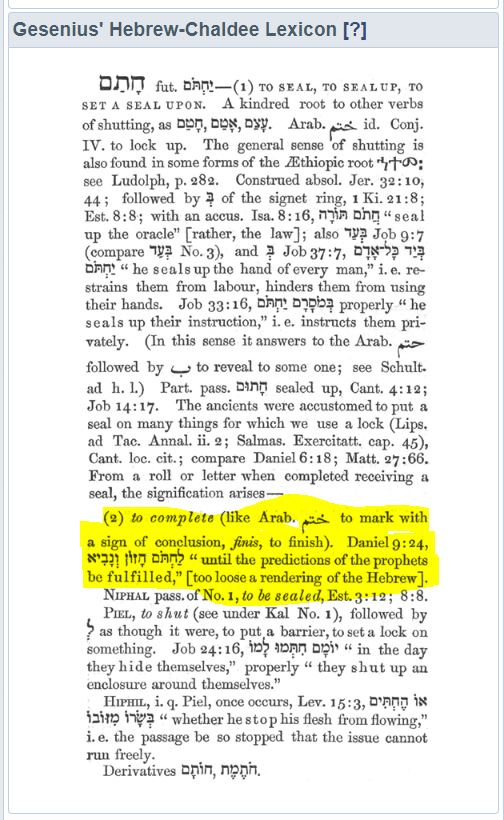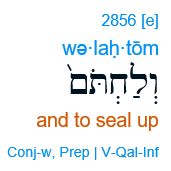Disclaimer: I have no formal training in Biblical languages.
In the Hebrew of Daniel 9:24 he is told that messiah was to חָתַם the vision and prophecy. As I have been told and have confirmed to the best of my ability, it is saying that messiah will "finish/complete vision and prophesy".
However, Revelation seems to be reading the LXX that has σφραγίσαι and is telling Daniel to "seal up [IE: "conceal"] the vision and the prophets":
Daniel 9:24:
KJV - 24 Seventy weeks are determined upon thy people and upon thy holy city, to finish the transgression, and to make an end of sins, and to make reconciliation for iniquity, and to bring in everlasting righteousness, and to seal up the vision and prophecy, and to anoint the most Holy.
Masoretic 9:24 שָׁבֻעִים שִׁבְעִים נֶחְתַּךְ עַֽל־עַמְּךָ וְעַל־עִיר קָדְשֶׁךָ לְכַלֵּא הַפֶּשַׁע ולחתם חטאות וּלְכַפֵּר עָוֹן וּלְהָבִיא צֶדֶק עֹֽלָמִים וְלַחְתֹּם חָזֹון וְנָבִיא וְלִמְשֹׁחַ קֹדֶשׁ קָֽדָשִֽׁים׃
LXX 9:24 ἑβδομήκοντα ἑβδομάδες συνετμήθησαν ἐπὶ τὸν λαόν σου καὶ ἐπὶ τὴν πόλιν τὴν ἁγίαν σου τοῦ συντελεσθῆναι ἁμαρτίαν καὶ τοῦ σφραγίσαι ἁμαρτίας καὶ ἀπαλεῗψαι τὰς ἀνομίας καὶ τοῦ ἐξιλάσασθαι ἀδικίας καὶ τοῦ ἀγαγεῗν δικαιοσύνην αἰώνιον καὶ τοῦ σφραγίσαι ὅρασιν καὶ προφήτην καὶ τοῦ χρῗσαι ἅγιον ἁγίων
In Chapter 10 John appears to follow the Masoretic:
Rev 10:7 KJV - 7 But in the days of the voice of the seventh angel, when he shall begin to sound, the mystery of God should be finished, as he hath declared to his servants the prophets.
But in Revelation 22:10 he seems to be alluding to the LXX:
Rev 22:10 KJV - 10 And he saith unto me, Seal[G4972 ie: "con-seal"; hide in a document with tamper-proof seals] not the sayings of the prophecy of this book: for the time is at hand.
Is Revelation alluding to the same passage in two different ways?:
- once ala Masoretic
- once ala LXX
Or is he alluding to different passages?

